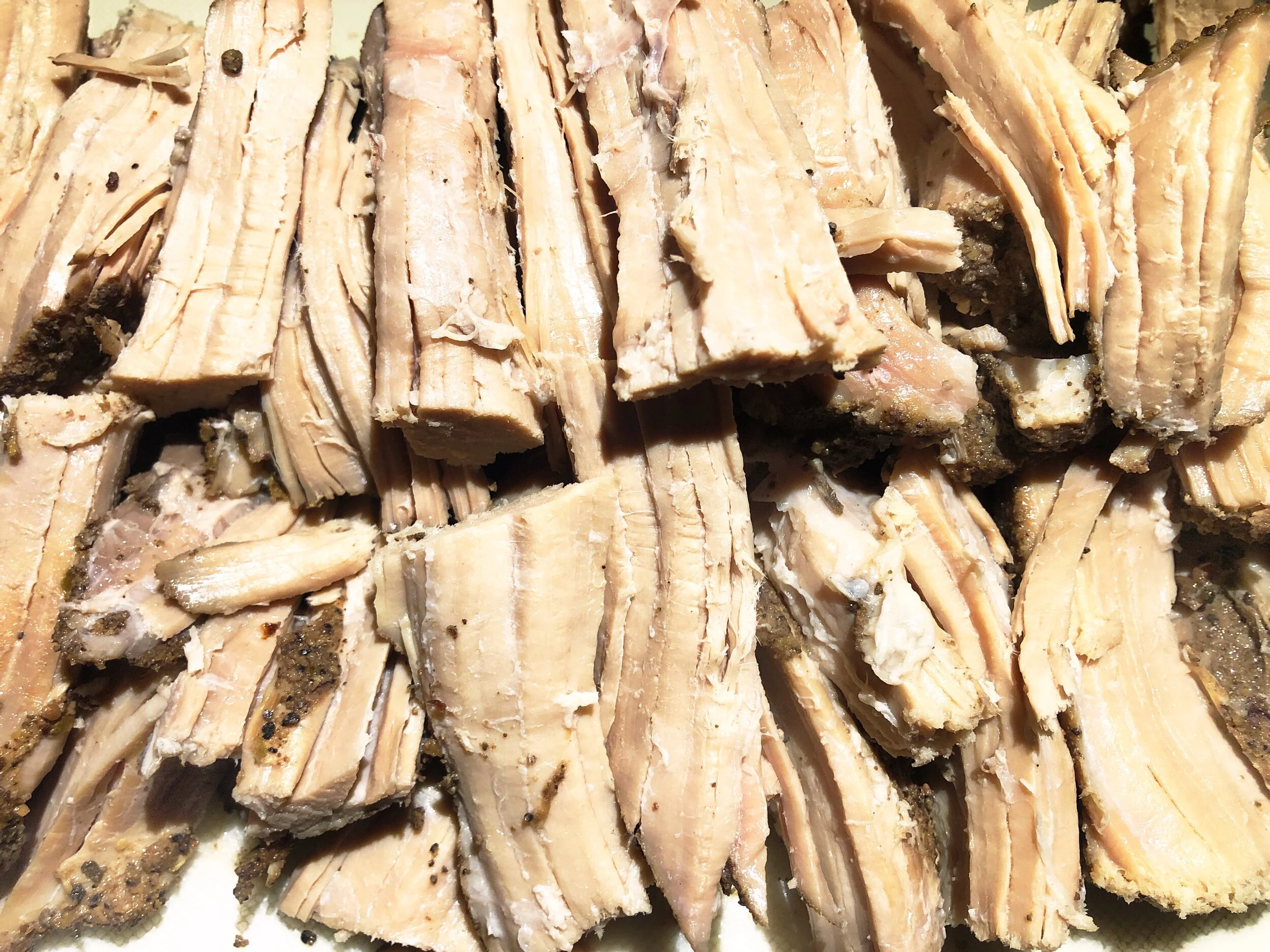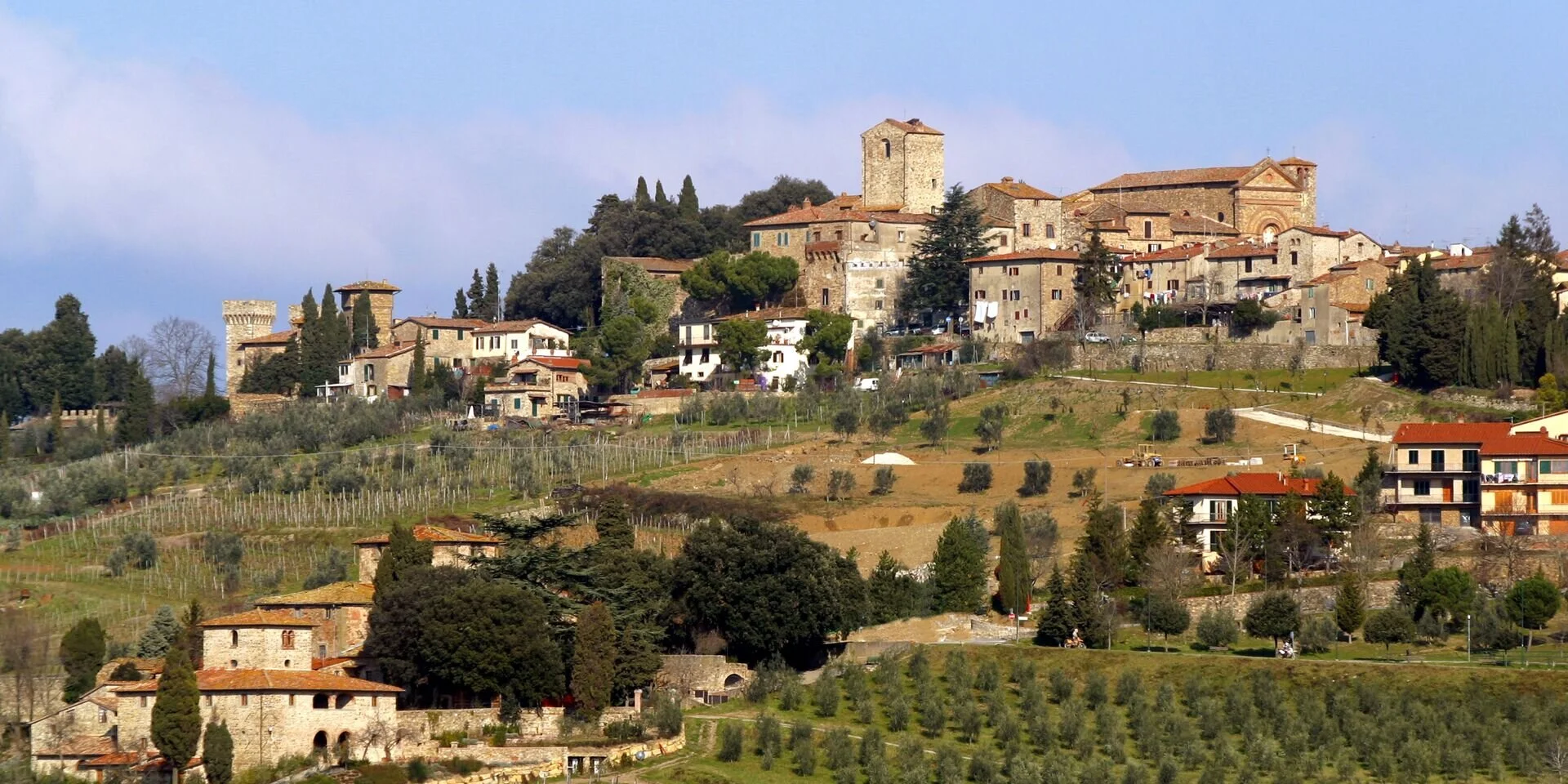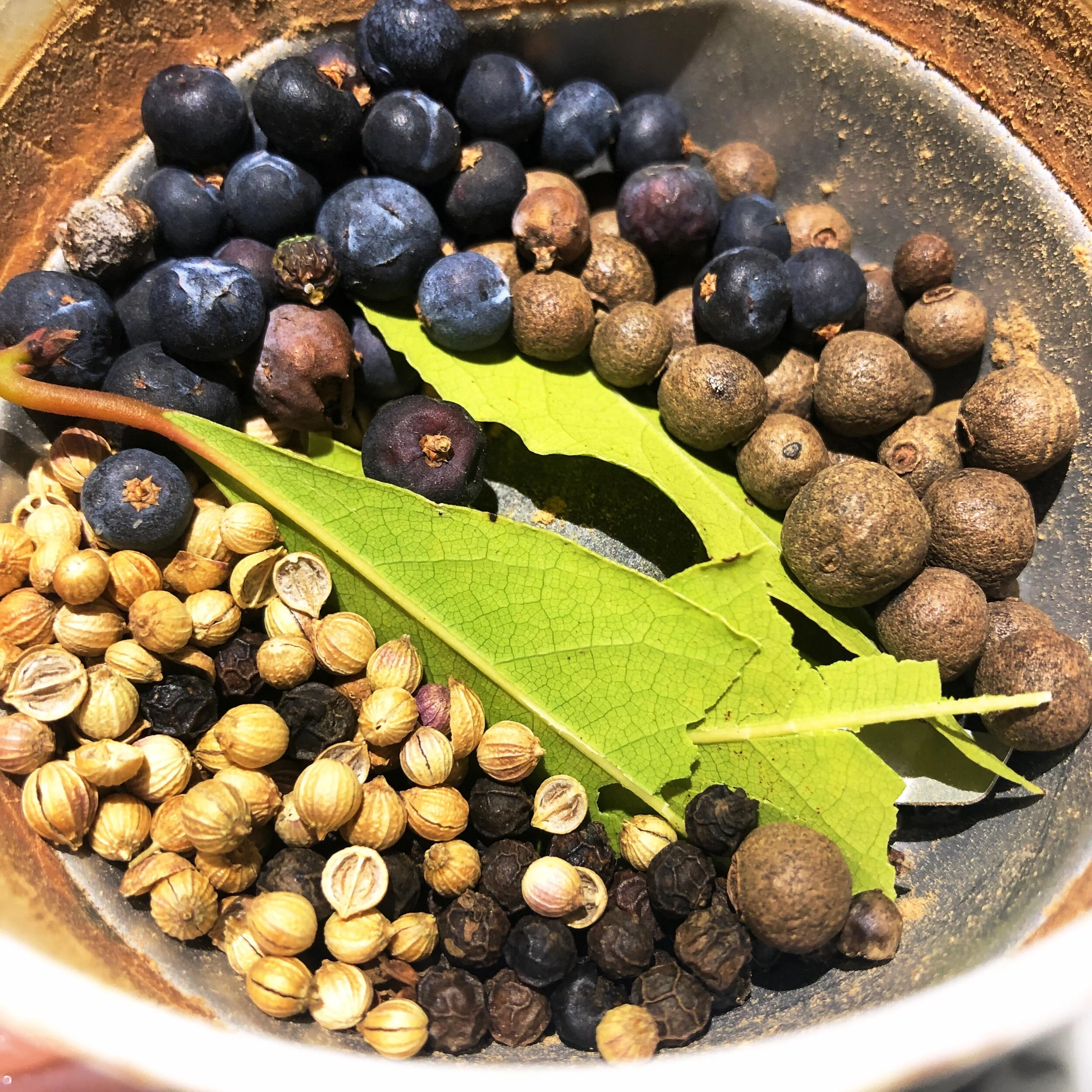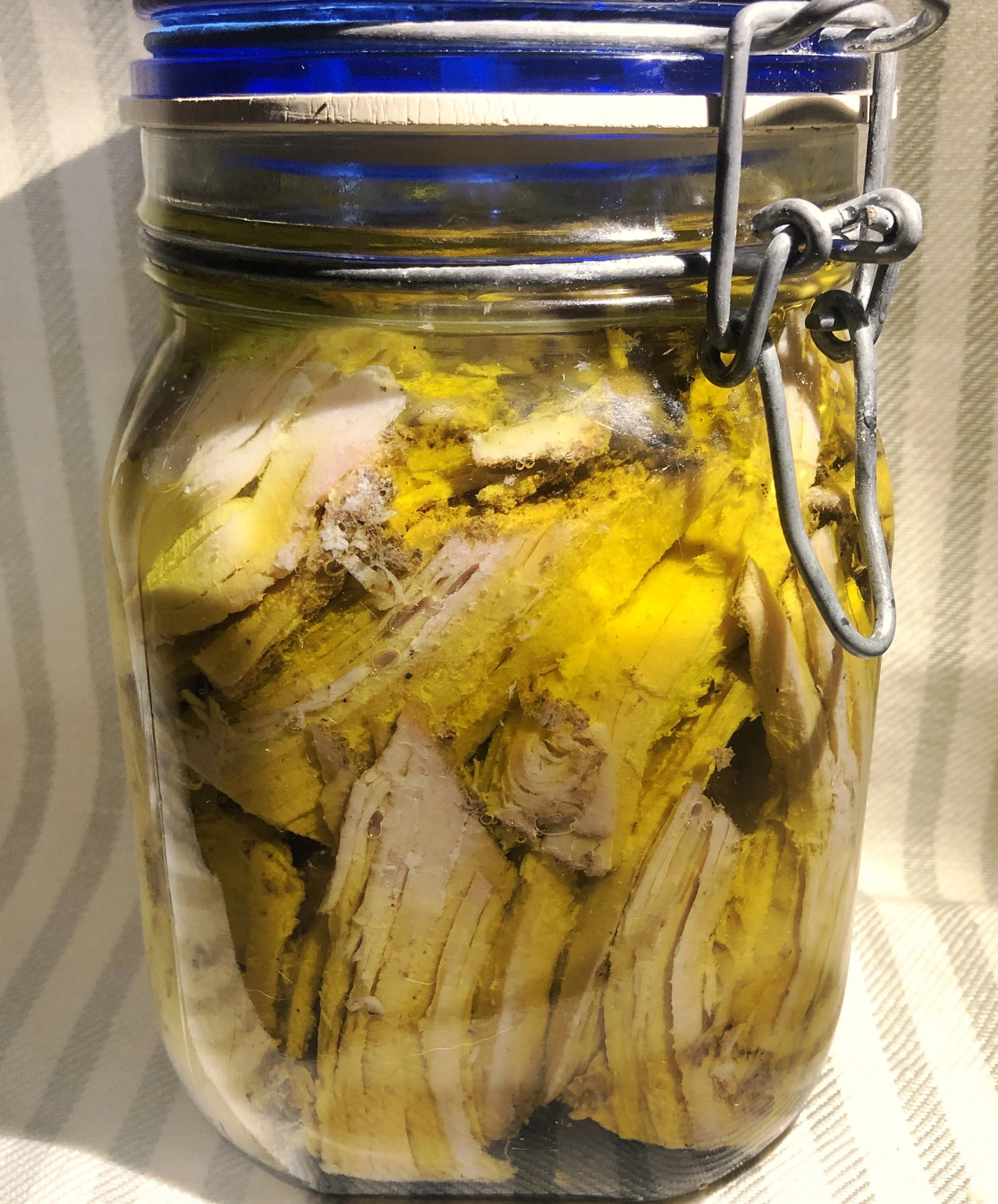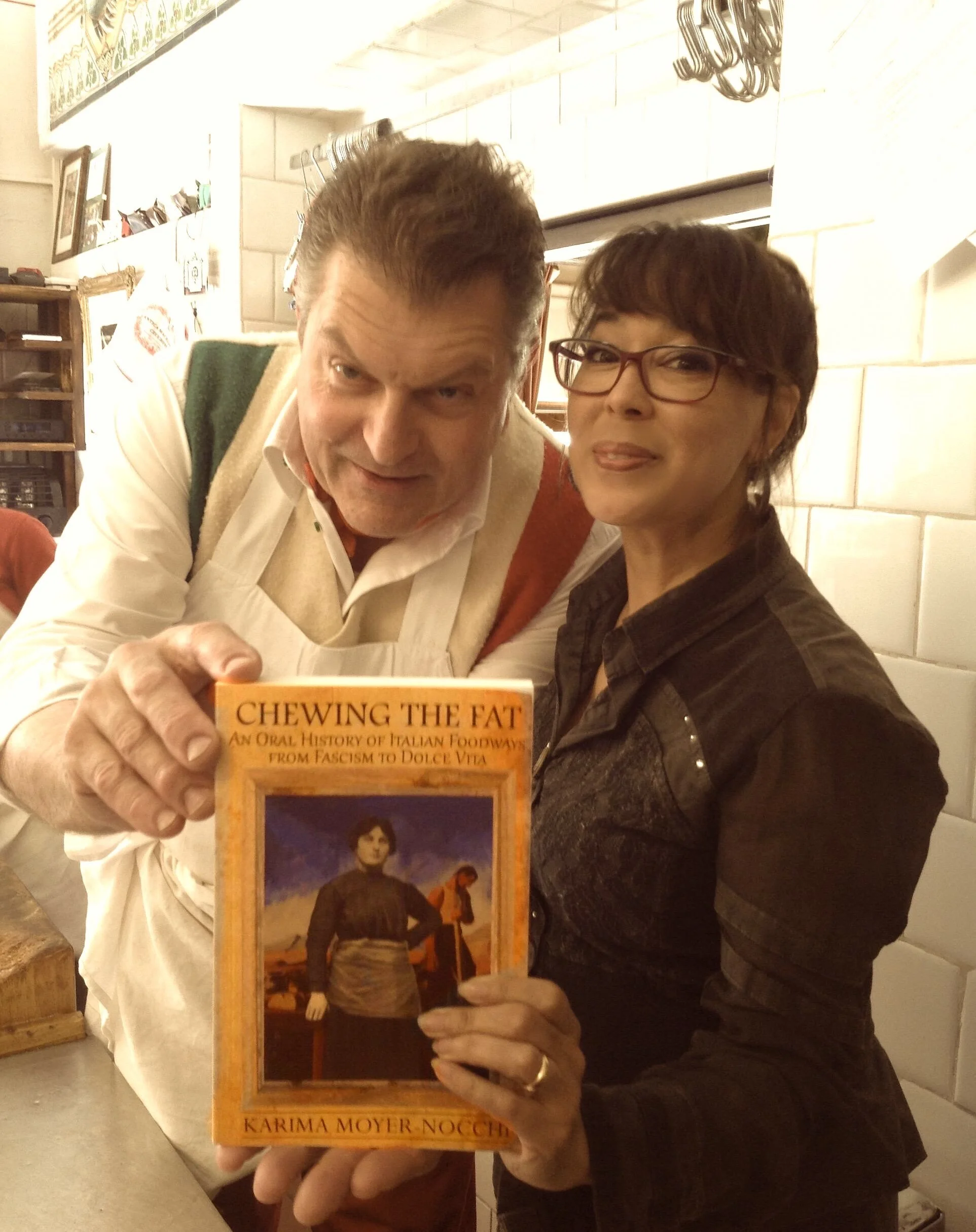In 2013, I met Dario Cecchini (also known as the Mad Butcher of Panzano) for an interview which became the epilogue of my book Chewing the Fat. Anthony Bourdain had referred to him as, “the repository of all things Tuscan,” which piqued my curiosity.
As the owner of a macelleria in the heart of Chianti that has been in his family for 250 years, I wanted to pick through his archive of food memories and get his perspective on the future of Italian food. He is a larger than life character with a generous spirit and a contagious joy for living. Despite international renown and success, he values maintaining his integrity as an artisan butcher. He enjoys his success, but believes that a principled craftsperson can only be defined as such if they keep their operation small enough to personally oversee the quality of the work produced.
The hilltop town of Panzano in Chianti.
Although he does not deal in cured pork products, a couple decades ago, he created a technique for preparing pork shoulder that gave it the appearance and mouthfeel of canned tuna. He called his creation Tonno del Chianti - Chianti tuna. It is considered quite a prelibatezza, a delicacy, and turns up on the occasional menu, particularly in central Italy where I first encountered it. You can find recipes for it online on the websites of pretenders, but, as Dario told me, the real recipe is a secret.
Taking it to Tiberia
The drive through the winding roads of Chianti to get to Panzano takes some doing, so I wanted to come up with a recipe of my own for this faux tuna. Rather than try to replicate Dario’s tonno, I moved the recipe further south to my own region of Umbria and personalized it as a Tiberian dish, using bolder flavors to distinguish it from its Tuscan cousin.
The Tiber River - photo taken along the path where I go running.
It may seem like a lot of meat, but you won’t want to scrimp on the quantity because it is so versatile. And, as it is lightly cured and packed in olive oil, it will keep well for at least a few weeks. It’s not like insipid leftover turkey that leaves you grasping at straws to come up with some other use for it. On the contrary, it is a boon to those who want to eat good food at home but have little time to fuss: it can perk up a salad with little or no need to add dressing, or make a lovely meal alongside a few leftover vegetables. It’s a great sandwich filler too: picture it on hearty sourdough bread with maybe a slice of cheese, some roasted red pepper (canned is fine), and an ever-so-thin sliver of red onion. Or artfully arrange shreds of it on top of an autumnal porcini risotto with a generous grind of pepper and freshly grated parmesan. It is so flavorful and toothsome, little bit goes a long way, which is in keeping with sustainable practices.
There is very little hands-on time required, but it does take several days from start to finish. Be sure to use freshly ground spices to get the full flavor impact of this dish.
Tiberian Tuna - Tonno del Tevere
Ingredients:
1-1.22 kilos pork shoulder cut into 4 large chunks
2 tbsp large crystal salt
2 fresh bay leaves
1/2 tbsp peppercorns
1/2 tbsp coriander seeds
1/2 tbsp allspice berries
1/2 tbsp juniper berries
2 lt neutral white wine
Oil and bay leaves for packing
Instructions:
Grind spices and bay leaves in a coffee/spice mill and rub into meat with the salt. Place the pieces in a tightly covered non-reactive container (plastic or glass) and refrigerate turning it once or twice every day for 4 days.
whole spices in grinder
4-day spice rub
Preheat oven to 140°C.
Place the meat with the spices still on in a dutch oven or other heavy pot.
Pour the wine in the pot and it should cover or almost cover the meat.
Heat the pot on the stove to a bare simmer.
Place in oven for 4 hours. After 2 hours turn the meat.
Turn off oven and leave sit in a closed oven 2 hours.
Cured meat ready for the oven.
Meat after cooking
Remove from oven. Take the meat out and let it cool on a plate.
When it is warmish, break the meat into large chunks.
Separated into chunks for packing in oil.
Pack the meat carefully into (a) glass jar(s) then cover with oil turning the jar to release air pockets. The meat should have a centimeter of oil on top.
Will keep for 3-4 weeks in the fridge. The olive oil will solidify after a few days, but simply fish the tuna chunks out before serving and let the olive oil melt at room temperature.
‘Tuna’ packed in oil
Save the cooking broth! It’s delicious in soups and risottos!
Dario Cecchini and I celebrating the publication of my book at his bottega in Panzano.

